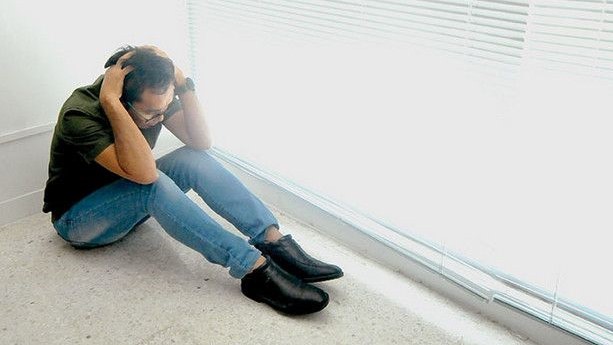

By Loshni Nair
Depression is a mood disorder that affects the way one feels, thinks and in some cases, interferes with day-to-day activities. Unlike sadness, depression is characterized by persistent feelings of low moods that last over two weeks.
In light with the passing of Kate Spade, Anthony Bourdain and a student from a private institution in Kuala Lumpur, Ipoh Echo discusses depression, with hopes of generating dialogue within the community.
Stigmas Make It Difficult for People to Reach Out
According to the National Institute of Mental Health, depression is marked by various symptoms. Examples are feelings of worthlessness, guilt, change in appetite, fatigue, pessimism and loss of interest in hobbies. However, symptoms vary from person to person.
Stigmas surrounding the illness make it difficult for people to reach out and receive the treatment they need.
Dr Marvin Chong, consultant psychiatrist at Hospital Fatimah Ipoh says that there is a common misconception that people who are depressed present themselves in bizarre manners, or act abnormally.
RELATE Malaysia


Dr Chua Sook Ning, clinical psychologist and founder of RELATE Malaysia – an NGO aimed at destigmatizing mental illnesses in Malaysia, says that weakness is a stigma that is often associated with depression, while other stigmas like ‘crazy’ and ‘insane’ are associated with bipolar disorder or schizophrenia.
“When I experience these lows, it appears to people that I am lazy and unwilling to do anything. In a way, I do feel like I am incapable of doing anything – but it’s more than just laziness,” says Trecia, who was diagnosed with persistent depressive disorder three years ago.
Twenty-one year-old university student, Jane* (not her real name) says that when she was diagnosed, her friends assumed that because she is depressed, she would be sad and suicidal all the time.
This is not necessarily true. Dr Chua Sook Ning explains that there is a severity spectrum: mild, moderate and severe depression.
Severity is a dimension, and the combination of symptoms is unique to the individual. Although everyone with depression will feel sad and/or the loss of pleasure, not all will have thoughts of death or suicide.
Functionality


Mabel Wong, vice-chairperson of Befrienders Ipoh, talks about functionality.
“It’s unhealthy to say that people who are depressed must act a certain way. High-functioning depression is a type of depression where individuals can lead regular lifestyles, go to parties and socialise. That does not mean they are no longer depressed, it simply means they are high-functioning.”
Katya* (not her real name) says that another myth is that depression is caused by a lack of faith. Having studied at a renowned public university in Malaysia for a short period of time, she said it was especially prominent there.
“What may look like hysteria may sometimes be a mental breakdown, and reciting religious verses doesn’t actually help,” she adds.
Nuralis Fatihah bt Mohd Ridhwan Fong says that she has tried talking to family about her depression. They respond by saying that depression is not real and that she lacks religious practice.
She says that another close relative suffers from schizophrenia but has constantly said that “it is a religious thing” and refuses to get treated, fearing for her career.
Prayer and Faith
Dr Chua says that a lack of faith does not necessarily cause depression, as depression can be caused by an array of factors. She says that although praying helps, it is not a cure. It is only a supporting agent.
According to Dr Marvin, depression can be caused by genetic factors, chemical factors, biological factors as well as physical factors such as social stress. “Some illnesses, like low thyroid hormone production may cause depression too, but to say that lack of religious practice causes depression is untrue,” he adds.
Mabel agrees, saying that although prayer does give some people strength, it is not a cure and says that topics like depression and suicide are still considered taboo in Malaysia. Depression is seen to be shameful, “it is difficult to talk about, but we have to start somewhere.” She adds that people avoid talking about suicide because they are afraid that talking about it means planting the idea of suicide in someone’s head.
Seeking Help


Trecia reveals that when she first spoke to her father about needing professional help, he wanted to hit her.
Nuralis adds that in her family, going for psychotherapy is viewed as ‘mad’ and that it affects employment possibilities. She has not received treatment to date, although she recognises that she desperately needs help.
Depression: Most Treatable
“It’s a shame that we don’t talk about depression enough, because truthfully, it’s one of the most treatable mental illnesses out there,” Mabel says.
She adds that parents can show their support by acknowledging the problem at hand. “Tell your kids that you’re on their side and that you’ll walk with them through their journey to recovery.”
Lack of Awareness
Both Katya and Jane admit that their families are unaware of their illness, as they have “enough to worry about”. “I don’t think they’ll understand,” Katya adds.
Chin Lee Moi, chairperson of Befrienders Ipoh, adds that a lack of knowledge when it comes to depression may be a contributing factor as to why parents do not know how to help their children.
We must educate ourselves. Befrienders conducts public awareness talks from time to time, and plenty of information is readily available online.
Suicide
Suicidal ideation is one of the many symptoms of depression.
The irony, however, lies here – when someone passes away from a physical illness, our first reaction is sympathy and pity towards the deceased, but when someone ends their life due to a mental illness, our first reaction is to assume that the deceased took their life because they do not care about their family. Why?




Katya says that assumptions like these make her sad and angry. “By saying things like this, you’re not only refusing to acknowledge the battle that the suicide victim was fighting. You’re also failing to acknowledge that this is a real problem. It’s dangerous, and we, as a society, need to do better.”
Rahul (name has been changed to protect identity), who has been diagnosed with depression and anxiety, says that he despises these assumptions. He says while it is easy to pass judgment after someone is gone, not everyone can understand the battles in their minds. “I hate people who say things like that. They don’t even try to understand our emotions, and us as people to begin with.”
Dr Chua says that these assumptions are not necessarily true, but it’s understandable that people might feel that way especially when they don’t understand why someone took their life.
Mabel says contrary to these comments, some people who call the Befrienders’ suicide hotline might believe that they are doing their families a favour by ending their lives.
“That is not true, of course. Most times, they feel like they’re a burden to their families, and they are overwhelmed by these feelings. It’s part of the illness,” she says.
Mental Health Care Inadequate
All the interviewees, including Mabel and Dr Chua, agree that mental health care is not accessible enough in Malaysia, as of today.
“Private psychiatrists are expensive. Government hospitals like the General Hospital here in Ipoh are well-equipped to handle psychiatric cases, but, waiting periods are long and people are scared that they’ll be labelled as ‘crazy’. They don’t want other people to find out,” says Mabel.
Dr Marvin says that although mental health awareness has been gradually improving in Malaysia, more can be done via campaigns and social media.


Hospital Bahagia
Mabel adds that Hospital Bahagia is one of the best hospitals in Perak to receive psychiatric treatment, but it has been labelled as a ‘lunatic asylum’ for such a long time, that just the mention of it makes people shudder. Public perception needs a reboot.
Dr Chua has many ideas to improve mental health care accessibility in Malaysia, such as increasing funding for the mental health sector, more money being spent on researching mental health and looking at policies that involve mental health.
Reaching Adolescents


A glimpse at the National Health and Morbidity Survey 2017: Adolescent Mental Health (DASS-21) revealed that the prevalence of depression among adolescents aged between 13-17 year olds recorded a staggering 18.3 percent out of 30,496 students. Number wise, this works out to 5581 students.
In 2012, the prevalence of depression was recorded to be 17.7 percent of 24,708 students that represented 4373 students.
There has been an increase of over 1000 adolescents showing symptoms of depression in the last five years. If this is the case – why aren’t schools doing more? Is one mental health evaluation, yearly, enough?
“The word ‘suicide’ rings alarm bells in their heads. If you want to conduct stress management talks, they’re very open to the idea. The moment you mention ‘suicide’, they’re no longer interested,” Mabel says.
Getting Help


“Depression can strike anyone. It doesn’t matter if you’re rich or poor, educated or not,” Mabel says.
Dr Marvin urges people to see counsellors and psychologists to determine the state of their mental health. “Talking to professionals helps to confirm whether what you’re experiencing is indeed clinical depression. It is important, as it paves the way for you to get treated.”
How do you get help? If private psychiatrists are not an option, fret not.
If you intend on seeing a government psychologist or psychiatrist, visit your local GP and provide him/her with a detailed list of your symptoms to get a referral letter.
RELATE Malaysia offers therapy sessions at affordable rates, available both online and face-to-face around Kuala Lumpur and Petaling Jaya. More information is available on their website, www.relate.com.my
Befrienders Ipoh offers listening ears via their hotline at 05 547 7933/955. You can choose to be anonymous when contacting them, and all calls are treated with strict confidentiality.
Depression is an illness that drives individuals into feeling alone, worthless and isolated.
Depression attempts to convince you that you cannot be helped, or that no one cares about your wellbeing, but that is not true. People care – even strangers. Taking the first step and reaching out is often difficult, but if you never try, you will never know.
Dr Chua adds that friends and family can help by being available. Gently encourage individuals to get help and remind them that you care.
Dr Marvin agrees, saying that although not all individuals may be open to talking about the way they feel, it is important for a support system to be present. “It doesn’t mean you have to constantly speak to them, just remind them that you are there, whenever they need you.”
However, there has to be a balance. Family and friends must accept that they cannot always save people, but they can support them.
“It is a two-way street,” Mabel says. People can only help individuals who are ready to help themselves.
The road to recovery is not always the easiest, but it is not impossible. Depression in Malaysia is a vicious cycle of victim-blaming and stigmatising, thus preventing people from getting treated.
Now is the time – not only to stop the cycle; but to break it, once and for all.
If not now, when? If not us, who?
*Names have been changed to protect identities


